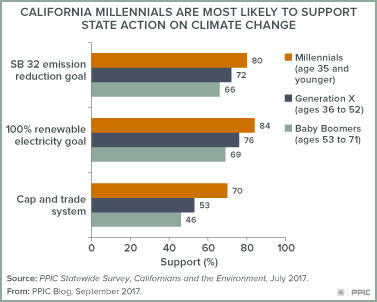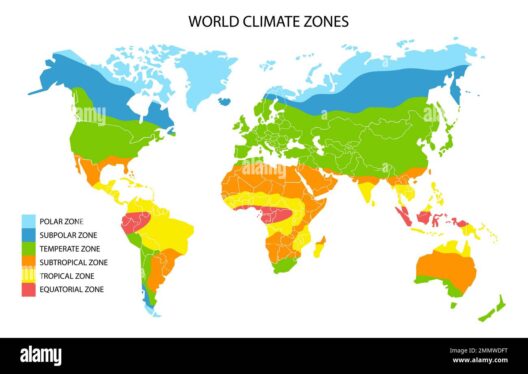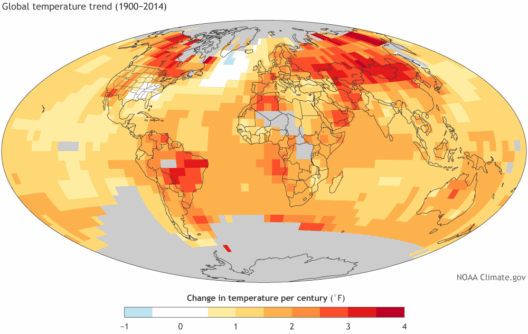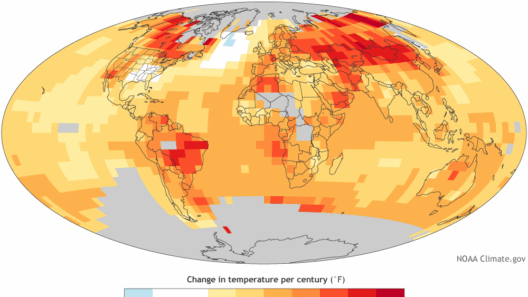As environmental discourse intensifies, millennials increasingly synonymize climate change with existential urgency. But what if we posed the question: Are millennials calling it climate change for a reason? The implications of this inquiry extend far beyond rhetoric; they delve into cultural, economic, and ethical dimensions that shape perspectives on one of the most pressing issues of our time.
To comprehend millennials’ relationship with climate change, one must first consider their unique positionality. Born roughly between 1981 and 1996, this generation has matured in an era rife with unprecedented environmental calamities. From natural disasters incited by climate anomalies to the pervasive visibility of ecological decline through social media, millennials do not merely perceive climate change as a distant threat; they experience it as an acute crisis. This generational reality underscores a salient phenomenon: millennials tend to frame environmental issues not in the abstract, but as tangible, immediate concerns. Thus, when they refer to “climate change,” it is often laden with urgency and desperation.
Yet the term “climate change” itself invites scrutiny. Is this nomenclature commensurate with the gravity of the situation? Some might contend that “climate change” is too euphemistic for a phenomenon that encompasses catastrophic alterations to terrestrial systems. Terms like “climate breakdown” or “climate emergency” resonate more with the existential threat posed by rising temperatures and eroding ecosystems. A playful question arises: Is the reluctance to adopt harsher terminology a reflection of societal denial or a strategic choice designed to foster dialogue? This linguistic debate illustrates a profound challenge in environmental communication: how do we convey urgency without inducing despair?
The challenge is further compounded by millennial cultural paradigms. This generation has been characterized by a heightened sense of social responsibility, particularly towards issues transcending geographical and political borders. The millennial ethos promotes sustainability, and activism has become woven into the fabric of their identity. They are not merely passive observers of climate events; rather, they are agents of change. The rise of grassroots movements like Fridays for Future epitomizes this shift, encapsulating a collective consciousness that transcends traditional political boundaries. Millennials are demanding accountability from governments and corporations alike. Their activism is underscored by the belief that the status quo is no longer tenable, catalyzing a cultural shift toward eco-consciousness.
To juxtapose this cultural engagement, it is imperative to acknowledge the economic realities that underpin millennial actions. The financial burdens they face are particularly intricate. Millennials have witnessed the stagnation of wages against the backdrop of rising living costs. Compounded by the implications of climate change on employment, this demographic often grapples with the dichotomy of sustainable choices against economic viability. For instance, while many wish to embrace a plant-based diet or support local businesses, the accessibility of these options can sometimes deter participation. Thus, the challenge becomes twofold: how do millennials advocate for sustainability while navigating economic constraints?
Social media serves as a double-edged sword in this context. On one hand, platforms like Instagram and TikTok amplify millennial voices, rendering climate change discussions ever-present in public consciousness. Visual narratives can potentiate emotional engagement, fostering informed communities. Accounts dedicated to environmental activism proliferate, encouraging lifestyle changes that align with eco-consciousness. However, this digital medium also brings challenges such as misinformation and superficial engagement—are likes and shares enough to catalyze the systemic change the planet demands? This tension invites further exploration into the efficacy of social media as a tool for genuine environmental advocacy.
Moreover, millennials are acutely aware of the intergenerational inequities perpetuated by climate inaction. They bear witness to the environmental impacts of decisions made by previous generations, often feeling a palpable sense of unfairness. This recognition shapes their engagement; they are not just fighting for their own futures but also for marginalized communities disproportionately affected by climate change. In this regard, the term “climate change” acquires additional dimensions, resonating with concepts of justice and equity. The millennial perspective thus encourages a broader discourse that links environmental sustainability with social justice.
In addressing the future of climate dialogue, we must confront the inherent contradictions within the conversation. On one hand, presenting climate change as an urgent crisis is necessary to mobilize action. On the other hand, fostering hope and empowerment is equally essential to prevent despair. How can millennials navigate this fine line? This question frames an essential challenge for environmental advocates and policymakers alike, inviting collective introspection and innovative approaches to climate communication.
Furthermore, the evolution of collective consciousness surrounding climate change is an opportunity for intergenerational collaboration. By forging alliances across age groups, millennials can leverage the wisdom and experiences of older generations while infusing discussions with their unique perspectives. This synthesis of ideas paves the way for holistic approaches to climate action, transcending the polemics that often stymie progress.
In conclusion, framing the question of why millennials reference climate change necessitates a multilayered approach. Their urgency, cultural values, economic realities, and commitment to equity inform a rich dialogue that challenges conventions and fosters innovation. As we grapple with this existential threat, it is critical to heed the multifaceted narratives millennials bring to the table. Within this generational discourse lies great potential for transformative action—if only we can embrace the challenge of nuanced communication and collective responsibility.








